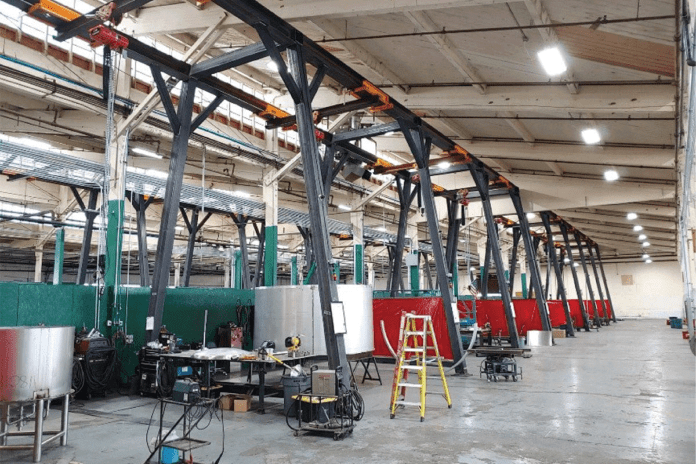Kaitlyn Pype wasn’t sure what she wanted to do with her life, but she knew she enjoyed working on cars. She thought about a career in automotive repair, but a degree program in mechatronics at Clover Park Technical College caught her eye because it combined a variety of interests.

“So, I went for it,” Pype said.
After earning an associate degree, Kaitlyn not only landed a job in the industry, but she is also part of the school’s four-year Bachelor of Science in mechatronics technology program.
She shared her success story with me recently as part of Manufacturing Week Live, a streaming web program produced last month by the Association of Washington Business (AWB) to highlight the role of the manufacturing sector in Washington’s economy.
Kaitlyn was one of 84 people I spoke with about manufacturing over the course of the six-day series.
The broadcasts were new for AWB, part of a year filled with change and disruption. Normally, our staff spends the first week of October on a bus, traveling the state and touring shopfloors to highlight the importance of manufacturing jobs.
This year, because of the pandemic, we couldn’t go inside dozens of manufacturing companies, so we got creative. We built a mobile video studio and hit the road, setting up each day at a different manufacturing-related venue and streaming interviews with manufacturing leaders, elected officials and young people like Kaitlyn who are just beginning their careers.
Even though the format was different, the goal remained the same: To highlight the vital role that manufacturers play in the health of our economy and our communities.
Manufacturing accounts for 8.5% of the state’s nonfarm employment and produces more than $63 billion in economic output — approximately 11% of the Gross State Product. There are more than 6,500 manufacturing companies across Washington, from big companies like Boeing to small, family firms that started in a garage or basement.
Prior to the pandemic, manufacturing built our economy, providing Washingtonians with good-paying jobs to support families and communities and giving the world essential products, everything from airplanes and hand-sewn work gloves to apples, wine and electronics.
In the early days of the pandemic, manufacturers responded to the call to make personal protective equipment for first responders.
And when we finally emerge from the pandemic, manufacturing will no doubt lead the economic recovery.
As we think about how to rebuild an economy battered by the coronavirus, it’s imperative that Washington’s leaders think about ways to support Washington manufacturers. Sustaining and growing jobs must be a priority.
We need to provide a regulatory environment that allows manufacturers to grow. We need to invest in infrastructure so manufacturers can get their goods to market and their employees can get to work. And we must continue to focus on workforce training to ensure that people who need jobs have the skills they need to fill existing job openings.
Finally, we need to change the perception of modern manufacturing so that more people like Kaitlyn recognize the amazing career potential that exists.
“You can do anything you want in manufacturing,” Kaitlyn said during our first web broadcast. “There are hundreds of directions to go in, you just have to pick one.”
For more information and to view the streaming web series, visit www.MFGisWA.org.
Kris Johnson is president of the Association of Washington Business, the state’s chamber of commerce and manufacturers association.




